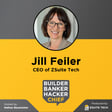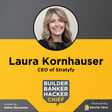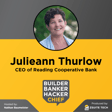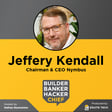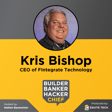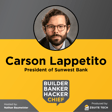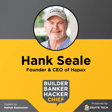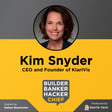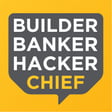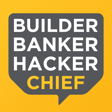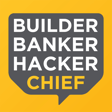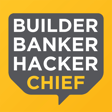
Steve Robert – Solving puzzles not mysteries, sweeping floors, and moving from the engine room to the bridge | Episode 16
Welcome to episode fourteen of Builder, Banker, Hacker, Chief! Joining me today is Steve Robert, Co-Founder and CEO of Autobooks.
On this show, I’m unpacking the stories, decisions, and influences that make people successful leaders. Steve has always had a strong drive to succeed, whether that was jumping into the workforce at the earliest opportunity or teaching himself how to write code. Today he’s still got that same ambition, it’s just tempered by a deep understanding of the difference between building fast and burning out.
My name is Nathan Baumeister; I am the Co-founder and CEO of ZSuite Tech and the host of this podcast.
Steve grew up in Detroit at a time when it’s economy was heavily dependent on the big automakers. Either you worked directly for the big three or you worked at a supplier for the big three. His father worked as a plant manager for one such supplier. It was there that Steve forged his indomitable work ethic, gained hard skills like driving a forklift and the knowledge that he didn’t want to work in a factory forever.
Eventually he made his way into IT and taught himself to code. That him to co-found a company known as Billhighway, an early fintech company that launched only a year after Paypal.
After a successful exit from Billhighway Steve could have stepped back from entrepreneurship and lived comfortably. That wasn’t in Steve’s nature as a leader. He felt a strong desire to create new opportunities for others, sending the elevator back down so to speak.
He founded Autobooks in 2015 and the company has enjoyed rapid growth, multiple awards, and consistent recognition as a leader in the fintech industry.
While Steve doesn’t take apart VCRs or troubleshoot broken software tools anymore, he’s gathered a talented team that is transforming the way banks and credit unions serve their business clientele. Together they’re building a company that is solving real-world problems with advanced technology.
Momentum for the Starship Autobooks is approaching warp speed and this episode is your opportunity to hear about from its captain firsthand.
Resources:
Steve’s recommendations:
Book: Adventures in Contentment by David Grayson.
Also available for free from the Gutenberg Project.
Connect:
